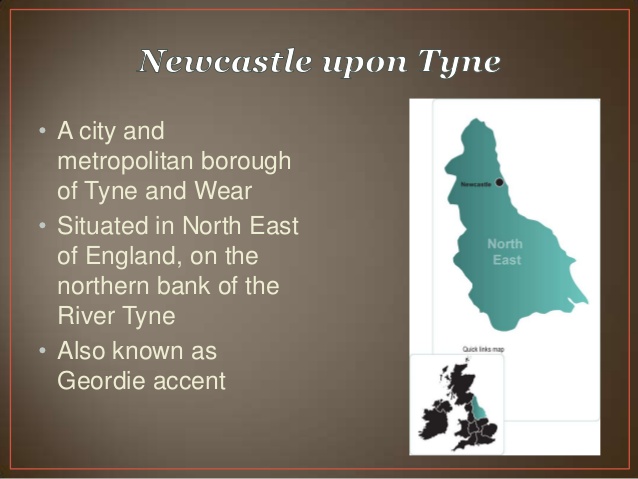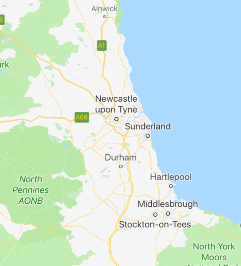What is Geordie?
Geordie, an English dialect and the people who speak it, is the oldest English dialect still spoken. If you’re not a Geordie, it’s also probably the hardest for you to understand.

The word Geordie refers both to a native of Newcastle-upon-Tyne and to the speech of the inhabitants of that city. There are several theories about the exact origins of the term Geordie, but all agree it derives from the local pet name for George.
It is sometimes mistakenly used to refer to the speech of the whole of the North East of England. Strictly speaking, however, Geordie should only refer to the speech of the city of Newcastle-upon-Tyne and the surrounding urban area of Tyneside.

Locals insist there are significant differences between Geordie and several other local dialects, such as Pitmatic and Makkem. Pitmatic is the dialect of the former mining areas in County Durham and around Ashington to the north of Newcastle-upon-Tyne, while Makkem is used locally to refer to the dialect of the city of Sunderland and the surrounding urban area of Wearside. Although only 10 miles apart, the difference between Sunderland and Newcastle-upon-Tyne is, of course, extremely important locally, not least because of the rivalry between supporters of the two football clubs.
For many people these different identities are expressed in the way they speak. To the south, speakers in rural County Durham and North Yorkshire are sometimes affectionately referred to as Farm Yakkers, while Smoggies — the inhabitants of Middlesbrough and the surrounding urban area of Teesside — have their own distinctive dialect, too.
A shared history
It is easy to see why people outside the North East often group these speakers together, as we can identify shared features in the English spoken in the area from the Tees to the border with Scotland. This is not surprising given that speech in this part of the country is descended from the dialect that emerged approximately 1,500 years ago in the mouths of Anglo-Saxon settlers from continental Europe. The North East was settled mainly by the Angles, as was most of central and northern Britain in the centuries following the decline of Roman rule in the early fifth century AD. The Angles came from the area around the border between Denmark and Germany and the language they spoke evolved into a number of Old English dialects often grouped together under the term Northumbrian. Other dialect groups that emerged elsewhere in the UK include Mercian, spoken in the Midlands, Wessex in the South and West of England, and Kentish in the far South East. As the name implies, the Northumbrian dialects occupied an area northwards of a rough line drawn from the River Humber in the East to the River Ribble in the West (corresponding approximately with today’s M62 motorway). This dialect area therefore also includes Scotland.
The Basics
Geordie is more than an accent and the people who speak it, is the oldest English dialect still spoken by many people in the northeast corner of England, particularly Newcastle and the Tyneside area. Academic journals refer to the Geordie dialect as “Tyneside English”. It’s a strong regional dialect, a full blown variant of English with many of its own words for common things. It is crammed with words of Anglo Saxon origin compared to the English spoken further south (which has more Latin roots) and may derive from Anglo Saxon mercenaries brought over by the Romans to fight the Scottish tribes to the north.